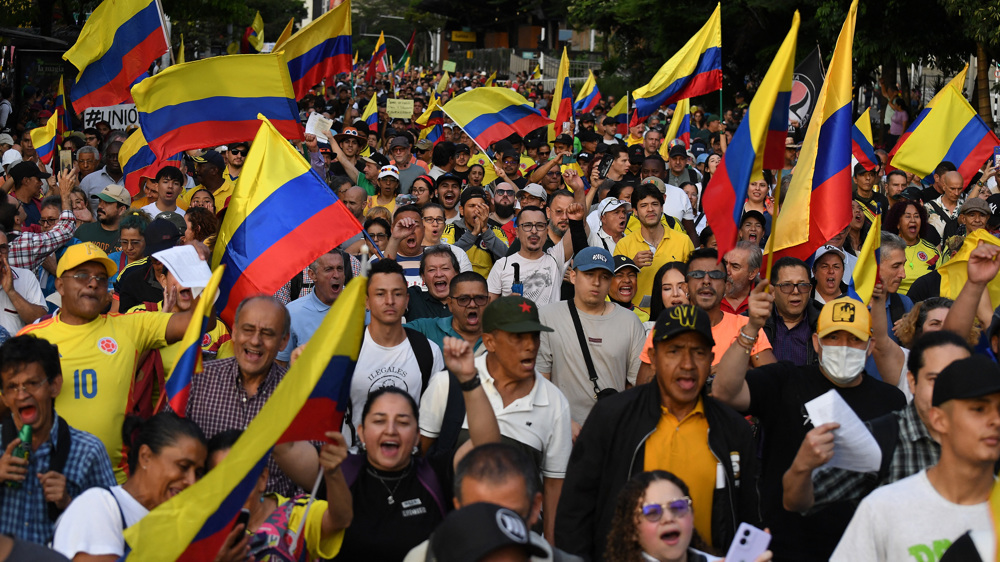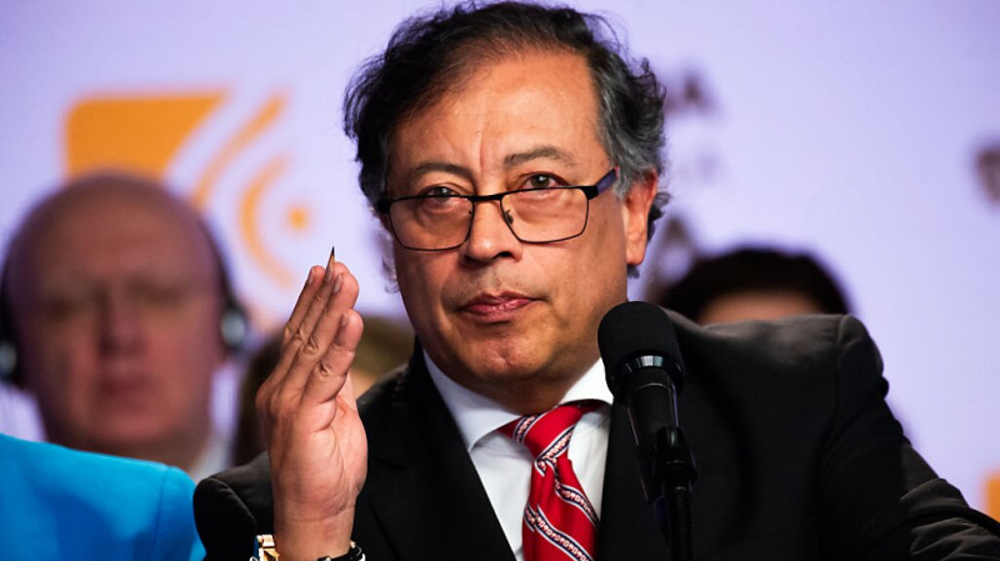Pressure mounts on Colombia govt. as protests enter second week
Colombian demonstrators have taken to the streets in the capital, Bogota, and other cities for the eighth consecutive day to protest the policies of President Ivan Duque as well as violence by security forces.
On Wednesday, thousands of anti-government protesters gathered in Bogota, the northwestern city of Medellin, and the southwestern city of Cali to voice their opposition to the Duque government's policies on health, education, and security.
They also condemned the heavy-handed response by security forces to the protests, after deadly clashes over a controversial tax reform proposal — now shelved — left scores of people dead or injured in the South American country.
Demonstrators in Bogota held banners with messages such as "Duque, resign!"
Riot police used tear gas to disperse the protesters, who had gathered in various parts of the city.
Despite calls for calm from the international community, fresh havoc was wreaked in the capital overnight.
The Bogota mayor's office said that 30 civilians and 16 police officers had been injured in numerous attacks on police stations by protesters.
Police stations were torched, bus shelters and banks were vandalized, and smoldering tires were visible in the capital.
"It hurts to see this but what hurts even more is the negligence of a deaf government that prefers to send the public forces, that instead of helping (the people), prefers to help the banks, the big businesses," a protester told AFP.
In Medellin, Colombia's second-largest city, around 8,000 people poured out onto the streets by mid-morning, chanting slogans against Duque's political mentor, former president Alvaro Uribe.
Many roads in Cali, the country's third-largest city, remained blocked, causing fuel shortages and concerns about the delivery of medical supplies, as the country struggles with a second wave of the coronavirus pandemic.
Several thousand indigenous people also joined the city's protests, many of them shouting "resistance."
The protests first broke out on April 28 after a now-canceled tax reform proposal by the government of the Colombian president drew widespread anger and triggered violent rallies across the South American country.
Latest official figures showed that at least 24 protesters were killed and more than 800 others sustained injuries in fierce clashes with security forces during the week.
Reporters without Borders said 76 journalists were assaulted, 10 of whom were injured by security forces.
The United Nations (UN) and the European Union (EU) have condemned the "excessive use of force" during the anti-government protests in Colombia, calling for an end to the escalating violence.
Duque has promised to open "spaces for dialog" with the various protesting sectors, although he has defended the security forces, calling them the main victims of the violence.
Even though the tax proposal bill was withdrawn, people have been continuing the anti-government protests in Bogota and other Colombian cities by blocking roads and junctions.
Colombia's economy shrank by 6.8 percent in 2020 — its worst performance in half a century — due to coronavirus restrictions, with unemployment reaching 16.8 percent in March and 42.5 percent of the population living in poverty.
VIDEO | Iron walls: One year of Israel’s largest military operation in Palestine in years
Italian farmers protest EU-Mercosur free trade deal
VIDEO | Russian FM holds annual press briefing, highlighting ‘equality-based’ diplomacy
VIDEO | Israel rejects Gaza 'technocratic body' amid continued suffering in Gaza
Iranian prodigy Benyamin Faraji wins Under-17 title in Qatar
VIDEO | Press TV's news headlines
VIDEO | Tehran residents condemn US-Israel orchestrated mosque arson, vandalism
VIDEO | South Koreans demand end to joint US military drills and provocative policy against North Korea









 This makes it easy to access the Press TV website
This makes it easy to access the Press TV website